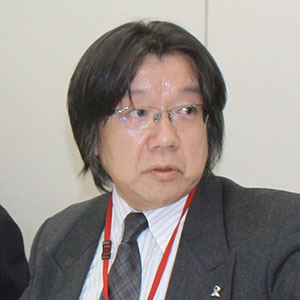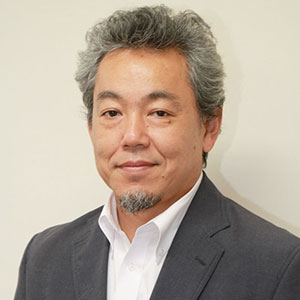To our colleagues struggling on the front lines in the fight against the novel coronavirus
Building local medical services resilient to natural disasters and infectious diseases
Akira Samejima (Kanagawa Prefectural Hospital)
Chief, Jichiroren health-care sector members’ group
 Medical institutions throughout Japan lack N95 masks, protective goggles and clothing, long-sleeved gowns, gloves and disinfectants, so they have been facing difficulties in taking minimum and appropriate measures to prevent infection and its spread. This also impedes the progress of medical workers who ensure the safety of their patients and themselves.
Medical institutions throughout Japan lack N95 masks, protective goggles and clothing, long-sleeved gowns, gloves and disinfectants, so they have been facing difficulties in taking minimum and appropriate measures to prevent infection and its spread. This also impedes the progress of medical workers who ensure the safety of their patients and themselves.
When novel coronavirus cases were found among medical workers, some hospitals operated by local governments, without conducting PCR tests on all of their workers, were going to assert extremely irresponsibly that nosocomial infection cases were not confirmed, so the staff with the virus were infected off duty without any supporting evidence. This does not allow healthcare workers to focus on their work without anxiety. Unions need to demand for improvement of the conditions.
The national government has consolidated public hospitals throughout the country. Promoting the consolidation plan, the Ministry of Health, Labor and Welfare has designated certain hospitals, including ones with beds for infectious disease patients, to be closed. The government must abandon this policy and work to build a society with local medical services resilient to natural disasters and infectious diseases.
There have been cases of medical workers infected with the virus in their workplaces. Healthcare professionals are forced to work in “extremely difficult or dangerous and mentally-stressful” conditions. Nurses’ and staff’s mental health needs to be taken care of.
We are in the difficult situation where we have to confront the unknown virus, but let us be aware strongly that it is the time for us to demonstrate our roles as medical professionals at public hospitals, encourage each other, and overcome the crisis.
We are the “last bastion”. Let us fight together to the end
Akihiko Ishihara (Yokohama City Office)
Chief, Jichiroren public health sector members’ group
 Staff, including managers, at public health centers’ departments in charge of infectious diseases have been exhausted by their challenging tasks since February. Jobs are concentrated in the departments as many municipalities have only one health center because of the consolidation of such institutions. They are busy day and night answering phone calls and handling businesses at the window. They also conduct epidemic investigations of infected people and those who have been in close contact with patients, observe their health conditions, and coordinate consultations with medical institutions.
Staff, including managers, at public health centers’ departments in charge of infectious diseases have been exhausted by their challenging tasks since February. Jobs are concentrated in the departments as many municipalities have only one health center because of the consolidation of such institutions. They are busy day and night answering phone calls and handling businesses at the window. They also conduct epidemic investigations of infected people and those who have been in close contact with patients, observe their health conditions, and coordinate consultations with medical institutions.
With an increase in the number of confirmed and suspected cases of infection, their workload has increased too. Staff in charge alone were not able to cope with it, and were supported by public health nurses with experience in dealing with infectious diseases, but this was not enough. In some municipalities, nurses from community health centers are taking turns to provide support. However, their ability to do so is limited as many of nurses and staff at community health centers have never dealt with infectious diseases. The national government issued a notice to local governments asking them to ensure a support system involving all workers, including non-regular ones, for the continuation of health center functions, but the support is completely insufficient in reality.
The government has promoted consolidation of health centers, reducing the number of them and their staff in order to cut the total labor costs. As health centers have continued their daily operations with the shortage of personnel, the public health sector members’ group of Jichiroren has repeatedly demanded that the health ministry “strengthen the structure of health centers” and “impose stronger measures to prevent new and re-emerging infectious diseases and to respond to their outbreaks.” It is also necessary to provide more allowances for those who transport patients, conduct epidemic investigations, and perform PCR tests.
Workers in local governments are the “last bastion” of supports for the livings of residents. Let us fight together to the end.
